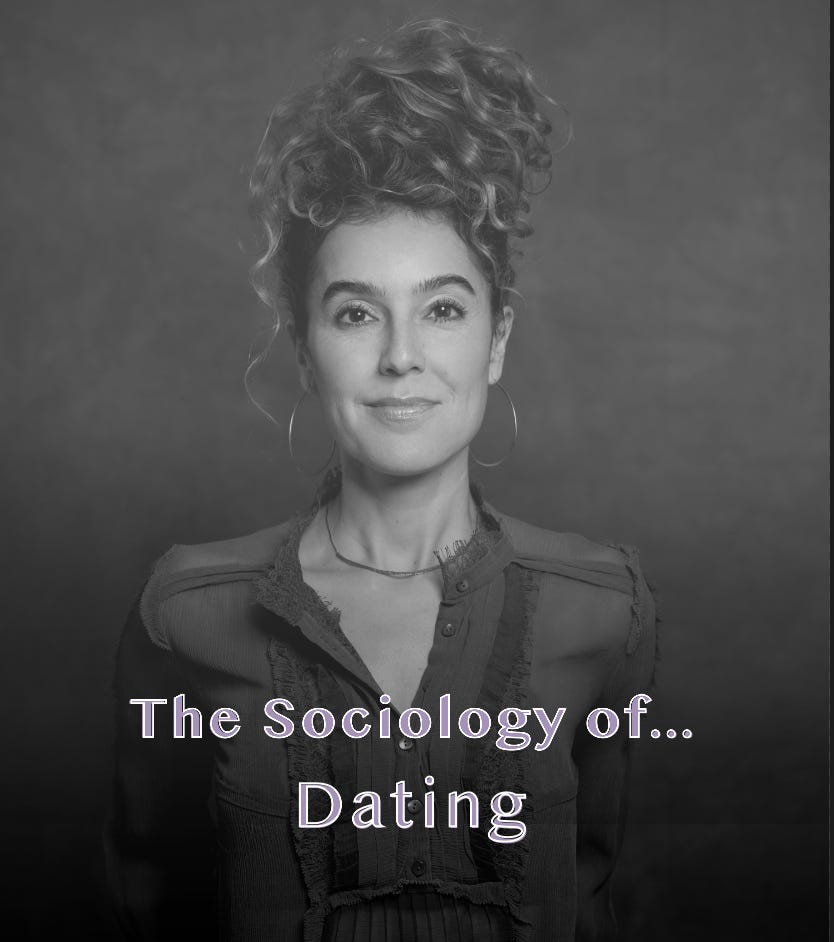The Gist of It: In a world where dating is slipperier than ever, your own behavior matters the most.
The Sociology of…Dating: The Why and the What
New month, new theme! Before those of you in coupled-up bliss try to bow out, I promise this is relevant to everyone. (Remember: The courtship never ends! Plus, this is really a two-part series, and next month I’m comin’ for everyone with the Sociology of…Relationships. So don’t get too comfy.) This is a long one, so settle in — or read it in chunks on the Substack app while you kill time waiting for your date to arrive. (Better yet: Use it as your icebreaker convo!)
Ok, so, the Sociology of…Dating. [Big sigh.] Where to begin?
Let’s start by acknowledging just how much annoying, often useless or misleading, dating-related clickbait content is out there. Every attention-hungry person who’s ever been on a date wants to tell you what to do and what not do, how to do it, why everything you’re doing is wrong, explain “how men think” and “how women think,” and issue all sorts of “nevers” and “always” absolute orders. It’s exhausting. And confusing. And can frequently work against you.
There are a few books and experts that I think rise above the noise and are worth your time. I’ll be talking to a few of them here in the coming months: my conversation with Jon Birger of Date-Onomics runs next week (not to be missed; so many insights); Harville Hendrix and Helen LaKelly Hunt of Getting The Love You Want are joining me next month; I also love Esther Perel (though my stalking of her hasn’t worked — yet :). But with these notable exceptions, much of the “dating behavior training content” (cause really, that’s what it is) are formulas with some truth to them, that apply to some people in some contexts. They often fail to account for the multitude of nuances and diversity displayed by humans, and too often they stay stuck, unable and unwilling to admit that changing demographics radically transform behavior (which Jon and I address next week). So you’re left trying to rigidly formulate your behavior to fit the model of some hypothetical characteristics that may or may not resemble you, your desired partner, and the type of relationship you want. Not a great solution, and one that might leave you feeling defeated and second guessing your own connection-oriented instincts — which, while certainly imperfect, are likely better than these “experts” give you credit for.
But just because most of the advice is unqualified, antiquated, and over-simplified doesn’t mean that the topic is unworthy of your time.
Dating is one of the most important things you’ll ever do, and relationships are the most important ingredient of life. Period.
Keep reading with a 7-day free trial
Subscribe to The Sociology of...Everything to keep reading this post and get 7 days of free access to the full post archives.





